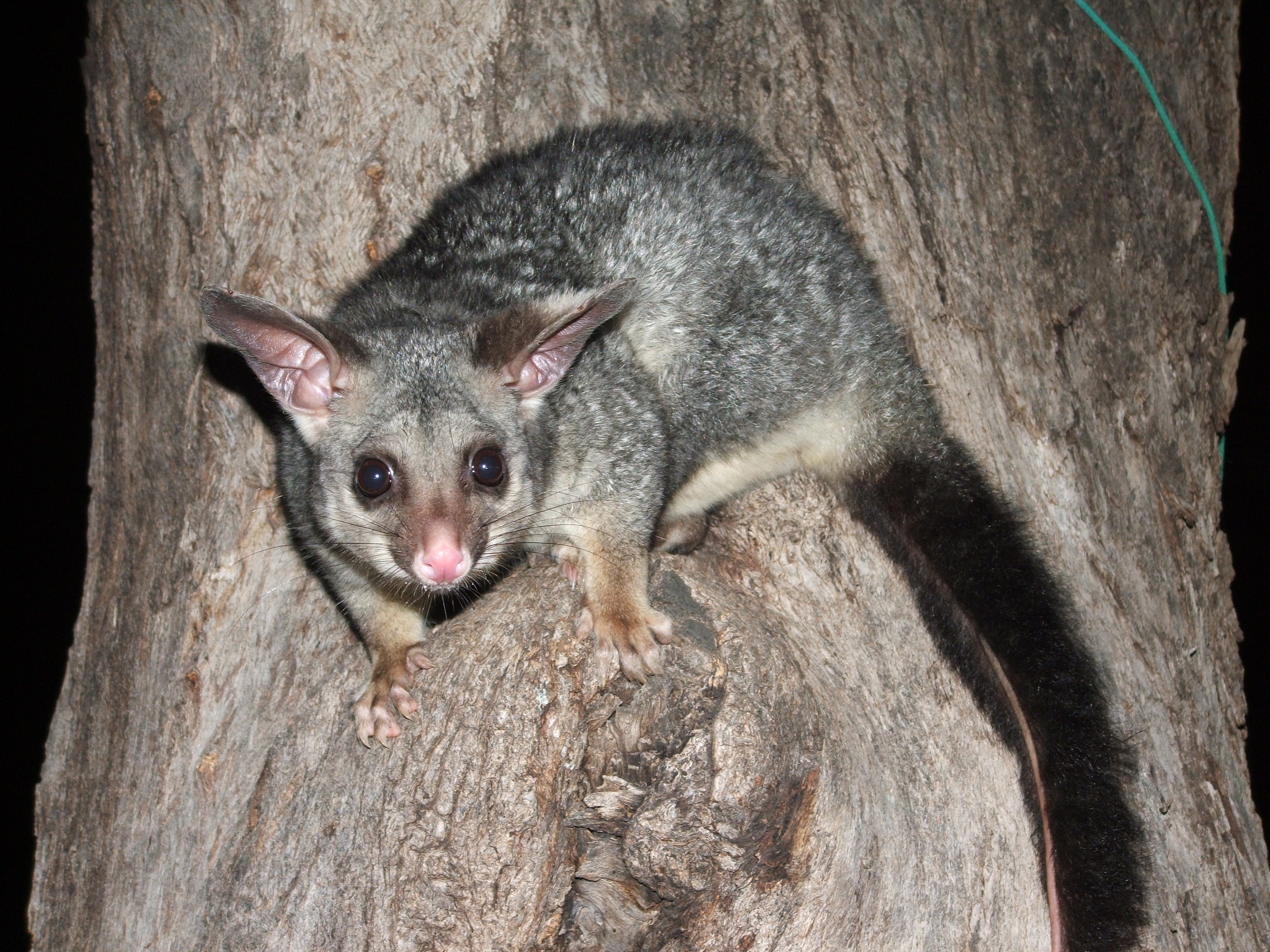Possum is a type of furry mammal that lives in the trees of Australia, New Guinea, and nearby islands. Possums are marsupials—that is, the females give birth to young that complete their development while attached to the mother’s nipples. Like most marsupials, young possums develop while carried about in a pouch on their mother’s abdomen. Both the possum and the opossum of the Americas are marsupials, but the two animals are not closely related.

Possums move about at night and sleep during the day. They have handlike hind feet that help them grasp the branches of trees. Possums eat mainly blossoms, fruits, insects, and sap. The animals have black, brown, gray, tan, or white fur.
There are dozens of species (kinds) of possums. The brush-tailed possum lives in Australian cities and raids fruit trees and garbage cans for food. Brush-tailed possums weigh from 3 to 11 pounds (1.4 to 5 kilograms). Other large species of possums, called cuscuses, weigh as much as 8 pounds (3.6 kilograms). The mouse-sized honey possum has a long, tube-shaped mouth and feeds on nectar and pollen. Pygmy possums may weigh as little as 1/4 ounce (7 grams). Several species of possums, called gliders, have large folds of skin between the front and rear legs on each side of the body. When the legs are spread, this skin serves as wings for gliding.
